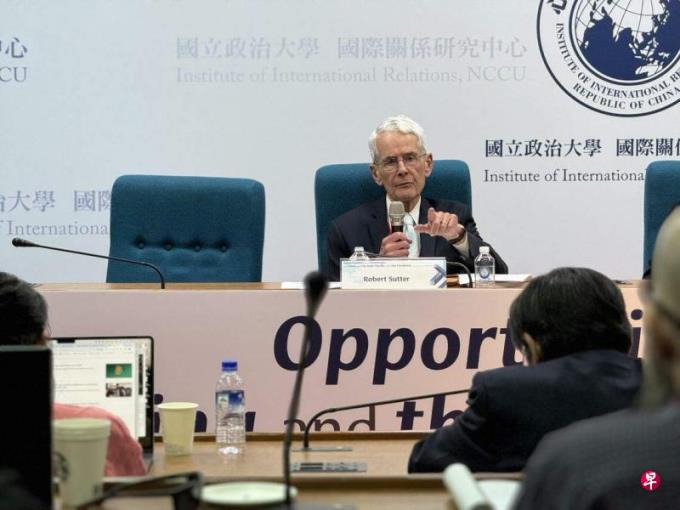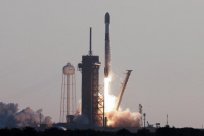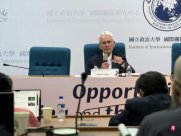
Robert Sutter, a scholar of the National Intelligence Council Intelligence Officer of the National Intelligence Council and the director of the China Department of the State Council's Intelligence Research Bureau on Thursday (March 21) in Taipei, pointed out that in an foreseeable future, the Taiwan dynasty is independent.The motivation is limited.But he was worried that if Trump was re -governed, he would weaken the United States and the allies to resist the determination, and then Taiwan would be in danger.
After the Taiwan election, foreign scholars frequently visited Taiwan to meet in Taiwan's academic and politicians. From Thursday, the International Research Center of Taiwan Politburo also held an international seminar for two days for two consecutive days.Said discussion.
Sartre, currently serving as a professor of international affairs at the International Affairs of Eliotic College of George Washington University, mentioned in a speech at the meeting on Thursday that the US government and Congress are currently working hard to deal with Beijing's challenges.It is very important to deal with the challenge of Beijing, "This will continue, and it will not stop because the US president is replaced."
Sartre believes that although the United States has strengthened military assistance in Taiwan, it has caused dissatisfaction in Beijing, but in fact, both the two are avoiding the war, and Beijing is unlikely to attack Taiwan.In addition to the US military deterrent factors, there is also a reason that in the foreseeable future, The motivation for independence in Taiwan is limited .
He admits that Beijing's scare in this area has achieved results.
Sartre emphasized that competition in the United States and China has become increasingly fierce, but after the meeting of the two heads of state last year, the recent restarting the dialogue mechanism will help reduce the risk of military conflict due to the upgrading of tensions.
He believes that Biden's re -election will continue to take major measures at home and abroad, including increasingly close connections with Taiwan;Story20240201-1465597 "R = NOFOLLOW TARGET = _blank> and Trump re-administered , and will take the" U.S. Priority "operation. This will weaken the determination and determination and partner of the United States and partners to deal with mainland China.Unity, if this happens, will cause serious damage to Taiwan and many other countries.
Sartre pointed out that Trump has stated that if he is elected, the United States will withdraw from Ukraine to significantly increase tariffs on mainland China, impose tariffs on allies and partners who have a trade surplus with the United States, and increase allies of allies.In military burden, Taiwan will have to make more efforts on defense.
In addition to Sartre, Korean scholars attending the seminar also reflect the uneasiness of American allies to the US elections.
Xu Ximin, a professor at the Department of Political Science and International Research, South Korea's Yanshi University, mentioned when attending the round table forum on Friday that at present, the uncertainty of mainland China is a problem, but the uncertainty in the United States is also a problem, especially the domestic politics in the United StatesDouble poles.
He emphasized that for the United States' allies in East Asia, it was impossible to know what happened during the presidential presidential election, which brought a certain degree of fear.
Because Taiwan and the United States have held elections this year, the situation of the Taiwan Strait has attracted much attention. Two Taiwanese scholars who do not want to be named have mentioned in an interview with Lianhe Morning Post that since the Taiwan election, at least one foreign visiting group has arrived almost every week.Visit, meet people in politics and academic circles.This frequency is rare in the past.
Public information shows that the German Marshall Foundation Director Bonnie Glaser and other scholar delegations from Washington met the current Taiwan's current Tsai Ing -wen and the prospective President Lai Qingde.
In addition, those who have worked in the U.S. government in the past have also frequently visited Taiwan recently.
Edward Wittenstein, the executive director of the Jackson Global Safety Research Project of Jackson Global Affairs of the United States Department of Defense and the Office of the National Intelligence Director, and David Rank, who was once the US temporary office in China , also visited Taiwan immediately after the end of the Beijing visit.
One of the Taiwanese scholars who did not want to be named revealed that many of the US military visits he received on the background of the US military in his reception; and when the US visiting group came to Taiwan to meet scholars, most of them were concerned about the new Taiwan government.Policy direction.



